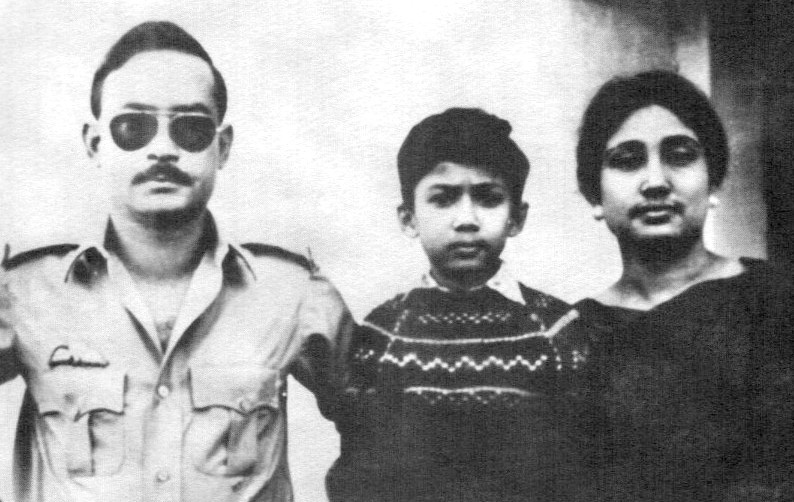Ziaur Rahman championed the introduction of multi-party democracy: Tarique Rahman
Publish: 20 Jan 2024, 06:38 AM

Ziaur Rahman with Begum Khaleda Zia and elder son Tarique Rahman at Comilla Cantonment, c 1972
On this 19th of January, President Ziaur Rahman, born in Bagbari, Bogura, in 1936, is commemorated on his 88th birth anniversary, praised as a distinguished figure in Bangladesh's history for his unwavering leadership during the Liberation War of 1971 and subsequent contributions to the state’s development. In a heartfelt statement via X (formerly Twitter), on 19 January 2024 at 11:49 PM, Tarique Rahman, Acting Chairman of the Bangladesh Nationalist Party (BNP) and son of President Ziaur Rahman, paid tribute to his father’s enduring legacy.
Tarique Rahman remembers President Ziaur Rahman as “a paragon of leadership and valor whose legacy intertwines with the narrative of Bangladesh itself.”
Highlighting Ziaur Rahman’s pivotal role in securing Bangladesh’s independence through the assertion of its sovereignty and his leadership on the front lines, Tarique Rahman stated, “Ziaur Rahman, the soldier, emerged as a hero during the Liberation War of 1971, displaying unwavering bravery and commitment to the nation’s cause by proclaiming independence and fighting the war on the frontline. When there was no one else, he was there to take up the cause of Bangladesh in his name. His remarkable contributions on the battlefield played a pivotal role in securing Bangladesh’s independence, earning him the respect and admiration of the nation.”
He underscored Ziaur Rahman’s adeptness in statecraft, remarking, “As the elected President, Ziaur Rahman steered the nation towards stability and economic prosperity. He implemented crucial policies that fueled economic growth, bringing about the development and nurturing of various sectors, especially the garments and remittance sectors, which continue to be the backbone of the Bangladeshi economy. His government’s policies ensured food security, reduced corruption, and opened new avenues of exports.”
“Recognising the importance of liberal values, he championed the introduction of multi-party democracy back to Bangladesh. His visionary leadership not only shaped the post-war trajectory of Bangladesh but also left a lasting legacy, marking him as the indispensable figure in our nation’s history,” noted Tarique Rahman.
